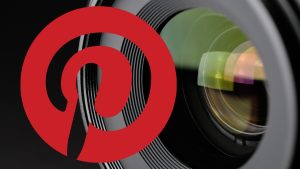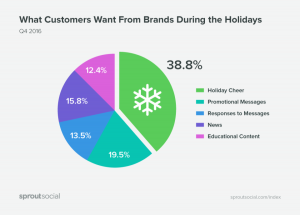
Hashtags are everywhere and brands are aiming to capitalize on all things UGC (user generated content). But sometimes, brands jump onto digital trends without truly understanding why they’re culturally relevant, in this case hashtags, and how to be part of the conversation in meaningful and effective ways.
Seems that every TV show, commercial, movie trailer or ad I see, every product box I open, at each event I attend, every storefront I pass, there’s always a #hashtag inviting me to join a “conversation.” The problem with many of these campaigns is that feel impersonal and too brand-centric, which in social media, is sorta anti-social. I believe the real opportunity for brands is to make hashtag campaigns so relevant and compelling that they bring like-minded people together online to form a mutually-beneficial community where sharing and engagement become natural.
Imagine what we could achieve as marketers if we took the time and effort to learn more about the people behind the hashtag and the networks of people to whom they’re also connected. Doing so would inspire a more concerted, significant and effective UGC campaigns.
Even though social media democratized publishing, gave individuals a digital voice and empowered everyday people to form and connect to influential peer-to-peer networks, many marketing campaigns are still rooted in traditional broadcast principles. But, behind every screen and every hashtag is a human being, like you and me, not a consumer and certainly not an impression or view.

While it’s easy to make these broad stroke assessments, the truth is that hashtags and the people who use them, form something special. They are expressions of personal or cultural statements or movements that form communities. It’s sparked by one and shared by many and the audiences of audiences that define the social web. Every post and response brings people together in ways that move things forward, changes perception, starts new trends or breaks cycles. They serve as an indexable moniker and format for all to follow and later search and study. Hashtags, and social media conversations en masse are influential and they can teach us quite a bit if we know what to listen for and whether or not we use the right tools to do so.
The mistake that brands often make when anchoring hashtags to marketing campaigns is that they force marketing-centric concepts onto people without considering the nature of related conversations or the greater aspiration and opportunity in the moment. And, even if brands are listening to the conversation, they’re really only tracking vanity metrics and not more substantial opportunities to learn and playback insights through differentiated, meaningful and unified UGC campaigns. This is a trap that I refer to as mediumism.

Hashtag Analytics, though, aims to change that. Hashtag Analytics is an emerging tech platform and practice that aims to raise the bar for UGC marketing. Picture a different kind of social dashboard that doesn’t just look at @mentions but also zooms in on hashtags engagement allowing marketers to rethink their approach to UGC…starting with users before generated content.
It introduces a new social media adage if you will, U before G and C.
- Users first.
- Content second.
- Relevant and productive content is the result.
Hashtag Analytics gives marketers context-rich data and visual insight that brings hashtag engagement to life. While still emergent, the idea of specifically studying the # in addition to social media conversations surface much more than traditional social media activity. It brings to life culture and expression in ways that help marketers see what’s happening and what it means and more so how to steer ongoing UGC initiatives that matter.
For example…
- Who are the influencers around key topics?
- What is the segmented and overall sentiment around the hashtag?
- Who are the demographic and psychographic communities organized around the #?
Don’t just come up with a hashtag that you feel encapsulates your brand. Hashtags should matter because they matter. That takes extra work. It’s not just your hashtags that matter. Learn from the mistakes and successes of others. Hashtag analytics helps you better understand people, groups, and who and what’s important to them and why.
It’s really just about the pursuit of ongoing relevance. Anything less is old school marketing.
Relevance…either you compete for it or you don’t. Trying to brand through creative hashtags doesn’t matter. What matters is people and what they relate to and why. Hashtags = community. That takes understanding culture, personality, challenges and aspirations and the desire to be culturally relevant.
U before G and C.
Digital & Social Articles on Business 2 Community
(96)






